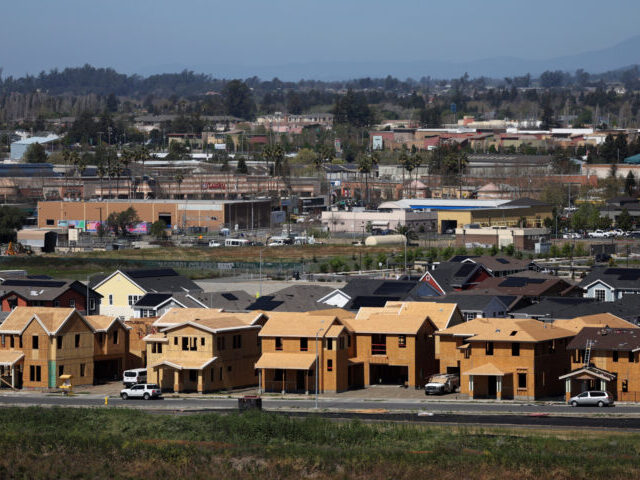Lincoln Project Calls Biden’s Job on the Economy ‘Enormously Successful.’ Americans Disagree.

Anti-Republican super PAC the Lincoln Project congratulated President Joe Biden for creating "one of the strongest economies in American history" even as the nation approaches its second consecutive quarter of negative growth in gross domestic product.
Biden has had an "enormously successful first 18 months in office," the Lincoln Project claimed on Monday in a rosy assessment of the president's performance that's at odds with the majority of Americans who blame Biden for record inflation.
"President Biden is a decent human being who exhibits the qualities we should cherish in a President: he’s a strong leader with clear moral standards and empathizes with Americans for the challenges they face every day," Lincoln Project cofounder Reed Galen said. "President Biden shows what American greatness looks like."
The Lincoln Project cited job growth, wage increases, and historically low unemployment as proof of Biden’s success. But nearly a million-and-a-half Americans could lose their jobs next year, according to a report last month from the Federal Reserve. Around two-thirds of Americans say Biden is either "responsible" or "very responsible" for inflation, polling shows.
Formed in 2019 to oppose former president Donald Trump, the Lincoln Project is known for spending millions of dollars to oppose Republicans such as Gov. Glenn Youngkin (Va.) while achieving little electoral success. The anti-Republican organization gained notoriety last year after it was revealed that founding member John Weaver sent suggestive messages to dozens of young men and at least one 14-year-old child.
The White House last week redefined the term "recession," which is commonly understood as two consecutive quarters of shrinking GDP, ahead of a Thursday GDP report that will likely reveal the economy shrunk for the second quarter in a row. The White House said a recession is determined through "a holistic look at the data," leading critics to accuse the Biden administration of covering its tracks so it won’t have to call the economic crisis a recession.
New Home Sales Plunge to Lowest Since April 2020 Lockdown Trough

Sales of new homes in the U.S. plunged 8.1 percent to a seasonally-adjusted annual rate of 590,000 in June, a far slower pace than expected by economists, Commerce Department data showed Tuesday.
The Commerce Department revised down its estimate for prior months. The May sales figure was revised down from 696,000 to 642,000, indicating the market was already much more sluggish than previously thought. That means sales grew by 6.3 percent compared with the initial estimate of a gain of 10.7 percent.
New home sales data can be volatile, especially when interest rates are changing. They frequently get revised.
Economists had expected an annual sales rate of 676,000 for June, according to Econoday.

he June figure represents a 17.4 percent decline from a year ago.
The media sales price of a new home sold was $402,400, a decline from May’s $449,000 and April’s record high $457,000. Three months of declining median sales prices may indicate that new home prices peaked this spring just as the Federal Reserve began to hike interest rates.

The supply of new homes jumped by 10.7 percent in June from the prior month. At the current sales rate, there is a 9.3 month supply of homes, which is considered a large amount of unsold homes on the market.
The Federal Reserve’s interest rate hikes have cooled down what was a blazing hot housing market. That is one of the primary channels through which the Fed’s tightening of monetary policy works. The average on a 30-year fixed-rate mortgage was 5.52 percent in June and has been around 5.45 percent in July. A year ago, the average rate was 2.87 percent.
In a separate report, the S&P CoreLogic Case-Shiller 20-city index on Tuesday showed home prices were up in May 20.5 percent compared with a year ago, a deceleration from the 21.12 percent gain reported in April. Compared with the prior month, the index was up 1.3 percent, also slower than the 1.7 percent gain reported in April.
The Federal Housing Finance Agency’s report on home prices, also released Tuesday, showed a 1.4 percent month-over-month gain and an 18.3 percent annual gain.
IMF Slashes Global Growth Forecast: Teetering on the Edge of a Global Recession

The global economy may soon be teetering on the edge of a recession and will likely grow more slowly than previously expected this year and next year, the International Monetary Fund said Tuesday.
“The global economy is facing an increasingly gloomy and uncertain outlook. Many of the downside risks flagged in our April World Economic Outlook have begun to materialize,” International Monetary Fund (IMF) chief economist Pierre-Olivier Gourinchas said in a blogpost accompanying the Washington-based institute’s report.
The IMF now expects the world economy to grow 3.2 percent this year, down from the April projection of 3.6 percent. Next year, global growth is expected to slow to 2.9 percent, 0.7 percent below the earlier forecast.
“The outlook has darkened significantly since April. The world may soon be teetering on the edge of a global recession, only two years after the last one,” Gourinchas said.
A general rule of thumb is that global growth below two percent qualifies as a recession. While national recessions typically involve negative growth over two quarters, the global economy almost never shrinks so a very low level of growth is considered a slump.
The report cited central bank tightening, Russia’s invasion of Ukraine, and China’s Covid lockdowns as slowing economic growth.
“Higher-than-expected inflation, especially in the United States and major European economies, is triggering a tightening of global financial conditions. China’s slowdown has been worse than anticipated amid COVID-19 outbreaks and lockdowns, and there have been further negative spillovers from the war in Ukraine. As a result, global output contracted in the second quarter of this year,” Gourinchas said.
Advanced economies are expected to grow 2.5 percent this year and to slow to 1.4 percent next year. The IMF projects that Spanish GDP will grow 4.0 percent this year and 2.0 percent in 2023, the best growth among the the group. The U.S. economy is seen as growing 2.3 percent this year and 1.0 percent next year. Germany’s economy is seen as the weakest, growing just 1.2 percent this year and 0.8 percent next year.
Growth in emerging and developing economies is projected to hit 3.6 percent this year and rise to 3.9 percent next year. China is expected to grow 3.3 percent in 2022 and 4.6 percent next year.
No comments:
Post a Comment